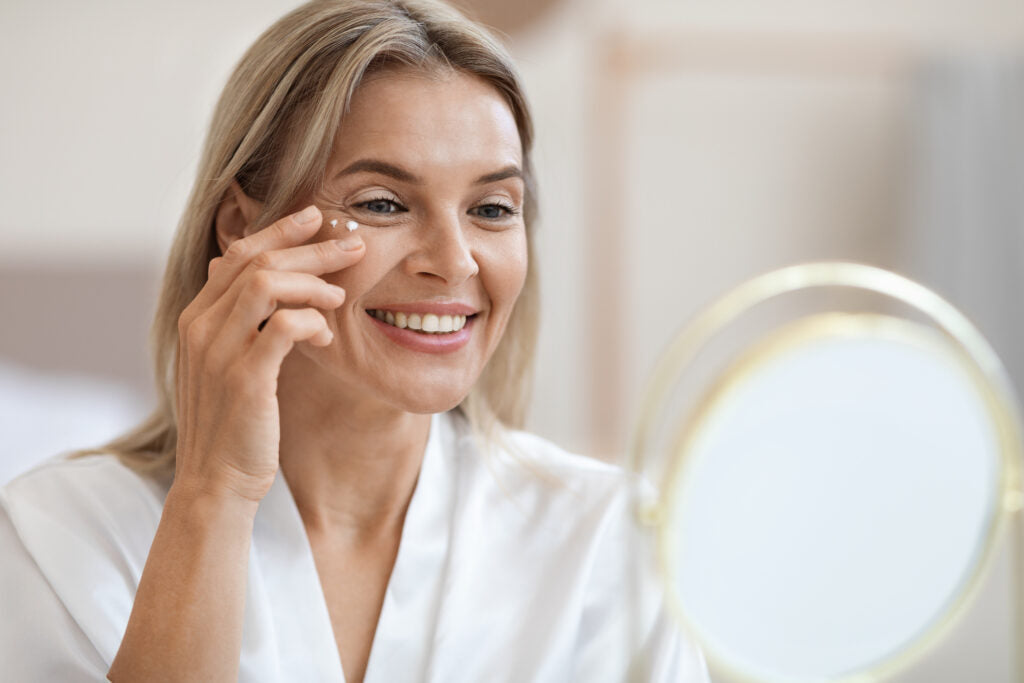Myths and Facts About Serums: Clearing Up Common Misconceptions
December 26, 2024

Serums have become a skincare staple in many routines, but with their rise in popularity come plenty of myths and misunderstandings. Let’s dive into some of the most common myths and facts about serums to help you navigate your skincare routine more confidently.
Myth 1: “Serums are just moisturizers in a different form.”
Fact: Serums are concentrated formulas designed for targeted treatment.
Unlike moisturizers, which are designed to hydrate and lock in moisture, serums are lightweight, concentrated formulas that deliver active ingredients deeper into the skin. They target specific skin concerns like fine lines, dark spots, acne, and dehydration. Serums are packed with higher concentrations of potent ingredients, which makes them more effective at addressing particular skin issues. So, while moisturizers keep the skin hydrated, serums treat specific problems for a more customized skincare routine.
Myth 2: “You don’t need a serum if you already use a moisturizer.”
Fact: Serums and moisturizers work together to achieve optimal results.
While moisturizers are great for hydrating and protecting the skin, they can’t always address specific concerns like wrinkles, pigmentation, or acne. That’s where serums come in. Think of a serum as a booster for your skincare routine—it’s designed to deliver high concentrations of active ingredients deep into the skin to target your unique skin needs. A moisturizer is still necessary to lock in moisture and protect your skin’s barrier. Together, they provide a balanced, effective skincare routine.
Myth 3: “The more serum you use, the better the results.”
Fact: A little goes a long way with serums.
Serums are packed with powerful ingredients, which means a little goes a long way. Using too much serum won’t give you better results; in fact, it may lead to irritation or product waste. Typically, you only need a few drops to cover your face and neck. Always follow the product’s instructions, and remember that less is often more when it comes to serums.
Myth 4: “You can skip sunscreen if you’re using a serum with vitamin C.”
Fact: Sunscreen is always necessary, even if your serum contains vitamin C.
While it’s true that vitamin C is a powerful antioxidant that can help brighten the skin and fight free radicals, it doesn’t replace sunscreen. In fact, using vitamin C can make your skin more sensitive to the sun, so it’s even more important to apply sunscreen every morning. Always follow up your serum with broad-spectrum sunscreen (at least SPF 30) to protect your skin from harmful UV rays and prevent further skin damage.
Myth 5: “You should use a serum for every skin concern you have.”
Fact: It's best to focus on one or two skin concerns at a time.
While it’s tempting to use a different serum for every skin issue, it’s usually more effective to focus on one or two key concerns. Using too many different serums can overwhelm your skin and cause irritation. For example, if you're looking to address both acne and fine lines, you might choose a serum with ingredients that target both concerns (like a serum with retinol for anti-aging and acne). Stick to your most pressing skin issues and address them one at a time for the best results.
Myth 6: “Serums can replace all other skincare products.”
Fact: Serums are a complementary step, not a replacement.
While serums are an important part of a skincare routine, they shouldn’t replace other essential steps like cleansing, moisturizing, and applying sunscreen. Serums are best used as part of a multi-step routine that includes a gentle cleanser to remove dirt and oil, a moisturizer to lock in hydration, and sunscreen for daily protection. Each product serves its purpose in maintaining the overall health of your skin.
Myth 7: “Serums are only for people with specific skin problems.”
Fact: Everyone can benefit from serums.
Serums are not just for people with specific skin concerns; they can benefit any skin type. Whether you have dry, oily, combination, or sensitive skin, there is a serum designed to target your needs. Hydrating serums with ingredients like hyaluronic acid are great for dry skin, while anti-aging serums with retinol or peptides work for mature skin. Serums can be a great way to boost your routine and enhance your skin’s health, no matter your skin type.
Myth 8: “You should apply serum only at night.”
Fact: Serums can be used both morning and night, depending on the formula.
While some people prefer using serums at night, many serums are designed for both morning and evening use. For example, a hydrating serum with hyaluronic acid can be used in the morning before applying sunscreen and makeup. On the other hand, if you’re using a serum with retinol, it’s usually best to apply it at night since retinol can increase sun sensitivity. Always check the instructions for each serum to understand the best time to use it.
Myth 9: “All serums are the same.”
Fact: Serums come in many different types, each designed for specific concerns.
Not all serums are created equal. There are many types of serums, each formulated to address specific skin concerns. Some common types of serums include:
- Hydrating serums with hyaluronic acid to boost moisture levels
- Brightening serums with vitamin C or niacinamide to even skin tone
- Anti-aging serums with retinol, peptides, or collagen to reduce fine lines
- Acne-fighting serums with salicylic acid or tea tree oil to prevent breakouts
The right serum for you depends on your skin type and what you're looking to address.
Final Thoughts: Serums Are a Powerful Addition to Your Skincare Routine
Serums are an effective and customizable way to address specific skin concerns, but it's important to understand how to use them properly. By busting these common myths, you can make informed decisions about incorporating serums into your routine. Remember, serums work best when paired with a solid skincare foundation—cleansing, moisturizing, and protecting your skin from the sun. With the right serum and a consistent routine, you'll be on your way to glowing, healthy skin!

